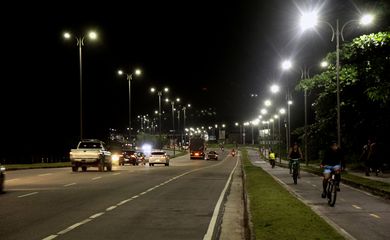Brazil can be highlighted as a provider of low carbon solutions

The Brazilian Center for International Relations (Cebri), in partnership with the Energy Research Company (EPE) and the Inter-American Development Bank (IDB) launched today (15th) the study of the Energy Transition Program (PTE), which provides a diagnosis of the Brazilian energy sector, drawn from debates organized throughout this year. Public authorities and decision makers from the private sector participated in the debates.

One conclusion is that the energy transition (ET) can be an important boost to a more sustainable economy, with Brazil taking a prominent place in the world as a provider of low-carbon solutions for other regions. “The country already has a mostly renewable electricity sector that is expanding with renewable solutions that are extremely competitive in global terms, which could be the vector for the large-scale production of green hydrogen”, indicates the document.
In addition, Brazil presents itself as one of the global leaders in bioenergy, with an important share of biofuels in transport, with ethanol and biodiesel; and in electricity generation. It is also capable of developing skills in new advanced forms of biofuels, including cellulosic ethanol, hydrogenated diesel, biokerosene, and biogas/biomethane.
The analysis revealed that the Brazilian oil and gas (O&G) sector is considered dynamic and structured, with great technical expertise, investment capacity and technological development.
The analysis of the program shows trends and uncertainties for the sector, related to the geopolitical context of the energy transition, and highlights the effects of the covid-19 pandemic, which determined the actions of countries around the world.
climate change
The document also reinforces the perception of the urgency of climate change, increasing the need for concrete environmental actions. "The global concern with climate change has increased and the actions and policies that are being developed will consolidate, producing, over the next few decades, a structural change in the configuration of the world energy matrix that, alone, corresponds to 3/4 of the global emissions.”
According to the document, 72% of greenhouse gas (GHG) emissions in Brazil are generated by the use of land and agriculture. For this reason, for the researchers, it is evident that the great challenge for the country to reach the climate goals involves “the development of a low-carbon agricultural sector and the control of irregular deforestation. In this field, the regulation of carbon credits, together with effective public policies to 'keep the forest standing', can make an important contribution”.
The study also advocates a way to "reconcile the dynamics of global economic recovery with the construction of a cleaner and more sustainable energy system within a feasible timeframe for the goals outlined in the Paris Agreement."
Demand
The challenges of improving the well-being of the demands of large Brazilian urban centers, as suggested by the analysis, can go hand in hand with climate goals. As an example, he cited the electrification of the heavy vehicle fleet, mainly urban buses in which electric motors are more efficient than combustion engines.
Regulation
Two points were considered fundamental for the available technologies to be chosen for the value they add to society: regulatory development and planning. In addition, it is necessary to promote coordination between the public and private sectors, allowing the country to prepare for the opportunities and threats of the energy transition.
“There is not just a single trajectory in the energy transition process. Each country will have to find its own path, seeking to capture opportunities to bring together economic growth and sustainability, while consolidating a low-carbon economy. In this sense, Brazil will not have an ET agenda the same as that of Europe or the US, since, considering its renewable electricity generator park and the weight of the biofuels sector, Brazil has been carrying out its transition for decades. .”
Text translated using artificial intelligence.






